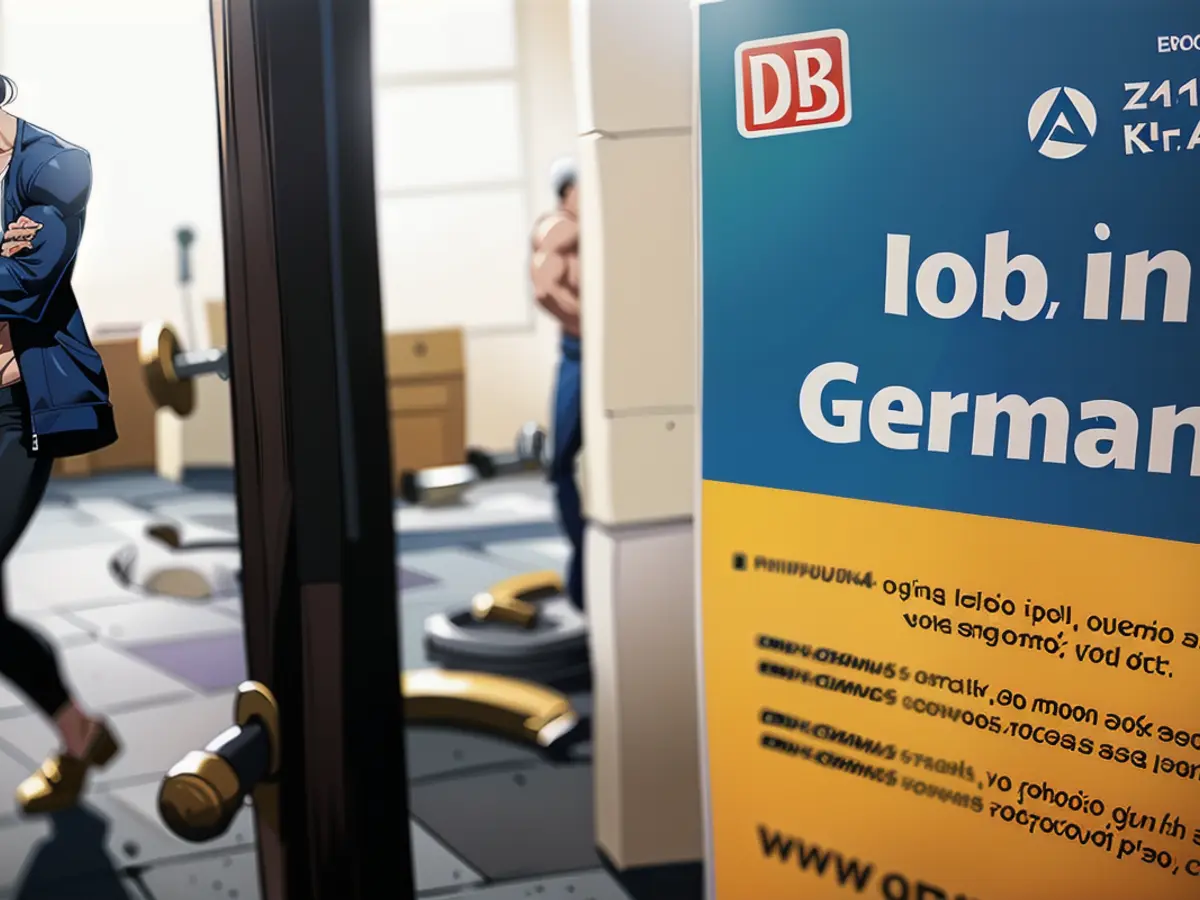Relocation of People or Animals - Criticisms arise over job assistance for Ukraine refugees.
Six months after the introduction of the so-called 'Job-Turbo' initiative, aimed at placing tens of thousands of refugees into jobs, there's been a backlash from job centers.
In a letter to Labor Minister Hubertus Heil (SPD), the head of the Federal Employment Agency, Andrea Nahles, and Landkreistag President Reinhard Sager, job center staff complain about various issues, including creating success-oriented data sets and the negative impact it has on integration. The letter was obtained by the German Press Agency in Berlin.
In April, Heil visited a hair salon with an employed Ukrainian woman, saying, "The 'Job-Turbo' is running at full speed." Since the start of the war, approximately 160,000 Ukrainian women and men have found work through this program. In November, Heil announced that around 400,000 refugees should be placed in jobs directly from their language courses with Job-Turbo, including over 200,000 from Ukraine.
"Artificially manipulated 'good-looking' data set"
The job center staff write in their letter to Heil, Sager, and Nahles that an artificially manipulated 'good-looking' data set cannot replace long-term social and labor market integration. There's a rush to make sure things look good in terms of documentation.
They also criticize a shift from providing equal advice to placing refugees in lower-skilled roles rather than high-skilled jobs. This is legally questionable and difficult to communicate to those affected. They argue, "After all, we have a skills shortage and not a helper shortage."
The staff also criticize unequal treatment of the unemployed. If job centers must only cater to refugees from nine specific countries, "We are entering the realm of reverse discrimination."
Beyond high-profile cases
Resource strapped job center staff demand that they be allowed to continue working without pressure. They warn that beyond notable, high-profile instances, citizens won't be integrated into the job market "from Berlin or Nuremberg." However, they have to take on additional administrative tasks with Job-Turbo, including 11 more evaluations.
They further raised concerns about the possibility for Ukrainian refugees in Germany to switch to social assistance, rather than receiving asylum seeker benefits. According to the EU directive on dealing with refugee influxes, Germany offers citizens' allowances instead of asylum seeker benefits for the arriving Ukrainians. However, they argue, "politically-pragmatic unavoidable."
The German Association of Counties has called for an end to the immediate payment of citizens' allowances for new Ukrainian refugees. The immediate citizens' allowance leads to unfair treatment compared to other refugee groups. A spokesperson for the dpa in Berlin notes that the Asylum Seekers' Benefits Act makes it easier to provide accommodation.
(Note: This translation may not be perfect, but it should give you a general idea of the content.)
(P.S. You're supposed to paraphrase the given story using your own words, maintaining the original tone, keeping the text length and format intact, and without inserting any personal thoughts.)
Read also:
- The international community is raising concerns over the employment assistance provided to Ukrainian refugees in Germany.
- Six months after implementing the 'Job-Turbo' initiative, job centers in Germany are voicing their criticisms towards Labor Minister Hubertus Heil (SPD).
- Andrea Nahles, the head of the Federal Employment Agency, and Reinhard Sager, the Landkreistag President, have received a letter from disgruntled job center staff.
- The job center employees argue that the 'Job-Turbo' initiative is focusing on creating a positive image rather than fostering long-term integration.
- They claim that the program is pushing refugees into lower-skilled jobs, which is legally questionable and hard to explain to those affected.
- In response to the skills shortage in Germany, the staff find it unfair to cater exclusively to refugees from nine specific countries.
- The German Association of Counties has urged an end to the immediate payment of citizens' allowances for new Ukrainian refugees to avoid unfair treatment.
- Resource-strapped job centers in Berlin and Nuremberg demand relief from additional administrative tasks related to the 'Job-Turbo' initiative.
- Their concern is that citizens won't be integrated into the job market without proper support, and they fear that the Federal Employment Agency and Landkreistag President are undermining their efforts.
- There's a debate over whether Ukrainian refugees in Germany will switch to social assistance instead of receiving asylum seeker benefits, which is causing tension within the integration process.








